
Majestic Mohawk Trail: A Scenic Adventure in Massachusetts
The Mohawk Trail is a historic and scenic route in the heart of Massachusetts that offers a captivating blend of natural beauty, cultural heritage, and outdoor adventure. Stretching over 63 miles from the Massachusetts-New York border to the Connecticut River, this trail is one of the most picturesque drives in New England. Originally a Native American trade route, the Mohawk Trail is now a favorite destination for tourists seeking stunning views and a taste of history. As you drive along the winding roads, you'll encounter charming small towns, lush forests, and breathtaking mountain vistas. The trail is particularly famous for its vibrant fall foliage, which transforms the landscape into a tapestry of brilliant colors every autumn. Outdoor enthusiasts will find plenty to do along the Mohawk Trail. There are numerous hiking trails, such as the popular Hairpin Turn Overlook and Mount Greylock, the highest peak in Massachusetts. The area is also ideal for camping, fishing, and wildlife watching. Along the way, you can explore quaint shops, art galleries, and historic landmarks that provide a glimpse into the region's rich past.
Local tips in Mohawk Trail
- Best time to visit is during the fall for stunning foliage views.
- Stop at the Hairpin Turn Overlook for panoramic views of the Berkshires.
- Visit the small towns along the trail for local crafts and dining.
- Hiking Mount Greylock offers rewarding views from the highest point in Massachusetts.
- Check out the Historic Deerfield for a deep dive into colonial history.
Majestic Mohawk Trail: A Scenic Adventure in Massachusetts
The Mohawk Trail is a historic and scenic route in the heart of Massachusetts that offers a captivating blend of natural beauty, cultural heritage, and outdoor adventure. Stretching over 63 miles from the Massachusetts-New York border to the Connecticut River, this trail is one of the most picturesque drives in New England. Originally a Native American trade route, the Mohawk Trail is now a favorite destination for tourists seeking stunning views and a taste of history. As you drive along the winding roads, you'll encounter charming small towns, lush forests, and breathtaking mountain vistas. The trail is particularly famous for its vibrant fall foliage, which transforms the landscape into a tapestry of brilliant colors every autumn. Outdoor enthusiasts will find plenty to do along the Mohawk Trail. There are numerous hiking trails, such as the popular Hairpin Turn Overlook and Mount Greylock, the highest peak in Massachusetts. The area is also ideal for camping, fishing, and wildlife watching. Along the way, you can explore quaint shops, art galleries, and historic landmarks that provide a glimpse into the region's rich past.
When is the best time to go to Mohawk Trail?
Iconic landmarks you can’t miss
Dinosaur Footprints
Explore the ancient world at Dinosaur Footprints in Holyoke, Massachusetts - a fascinating site showcasing dinosaur tracks embedded in natural beauty.
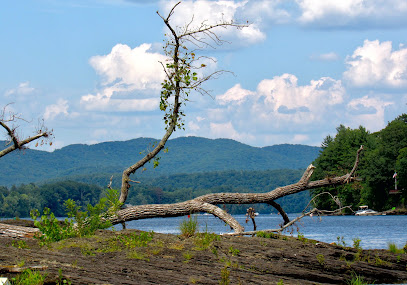
Mass Audubon's High Ledges Wildlife Sanctuary
Experience the beauty of wildlife at Mass Audubon's High Ledges Wildlife Sanctuary, a serene refuge in Shelburne Falls, Massachusetts.
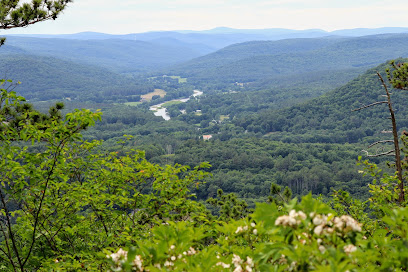
Unmissable attractions to see
MASS MoCA
Explore the vibrant world of contemporary art and culture at MASS MoCA, a premier destination for artistic innovation nestled in the heart of North Adams, Massachusetts.
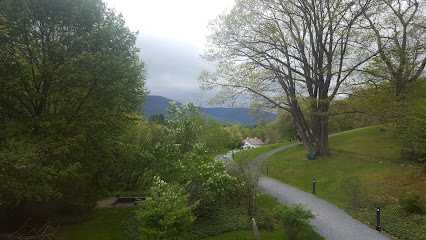
Bridge of Flowers
Explore the Bridge of Flowers in Shelburne Falls, MA – a stunning floral walkway that combines natural beauty with rich local history.
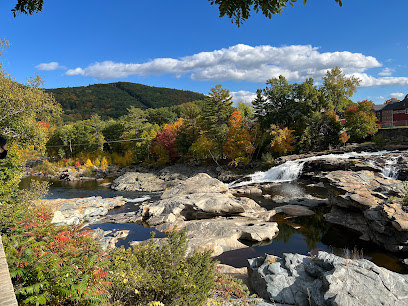
Magic Wings Butterfly Conservatory
Explore the enchanting world of butterflies and exotic wildlife at the Magic Wings Butterfly Conservatory in South Deerfield, Massachusetts.
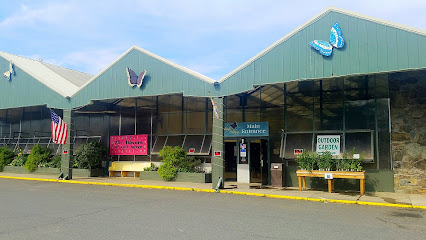
Mount Sugarloaf State Reservation
Discover breathtaking views and serene hiking trails at Mount Sugarloaf State Reservation, a scenic paradise in South Deerfield, Massachusetts.
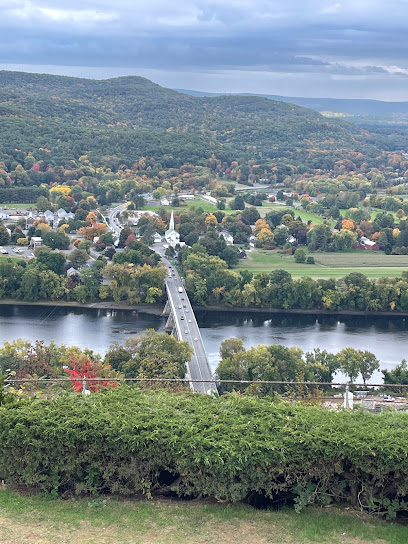
Natural Bridge State Park
Explore the breathtaking beauty of Natural Bridge State Park, home to North America's only natural marble bridge, perfect for outdoor adventures and serene escapes.
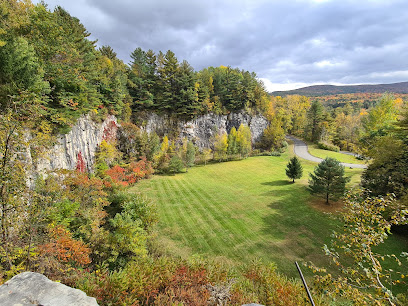
Wahconah Falls State Park
Experience the breathtaking beauty of Wahconah Falls State Park, a top destination for hiking, picnicking, and enjoying nature in Massachusetts.
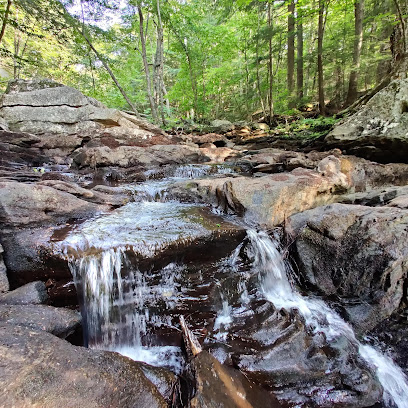
Mass Audubon's Pleasant Valley Wildlife Sanctuary
Explore the serene landscapes and diverse wildlife at Mass Audubon's Pleasant Valley Wildlife Sanctuary, a true haven for nature lovers in Lenox, Massachusetts.
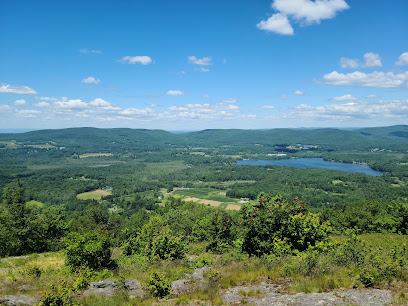
Doane's Falls Reservation
Explore the breathtaking beauty of Doane's Falls Reservation, a natural gem in Royalston, Massachusetts, perfect for hiking and nature lovers.
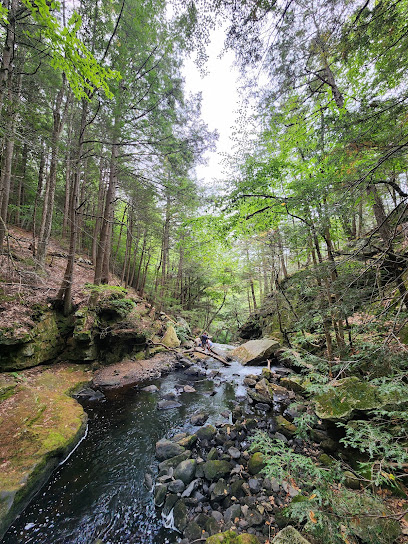
Mt. Holyoke Summit House
Discover breathtaking views and rich history at Mt. Holyoke Summit House, a must-visit attraction in Massachusetts' beautiful Pioneer Valley.
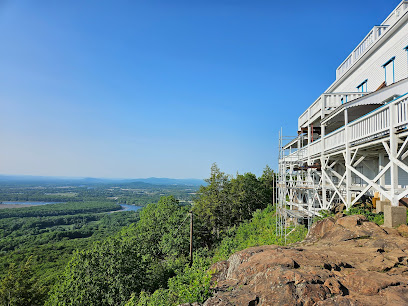
Three Sisters Sanctuary
Explore Three Sisters Sanctuary, a stunning blend of art and nature in Goshen, Massachusetts, perfect for relaxation and inspiration amidst beautiful gardens.
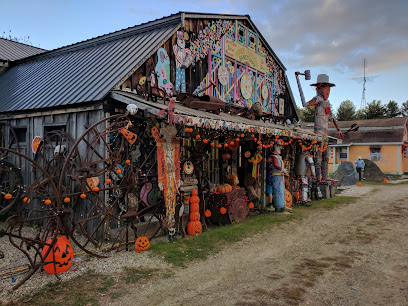
Historic Deerfield
Explore the rich history of colonial America at Historic Deerfield, an open-air museum showcasing 18th-century homes and captivating exhibits.
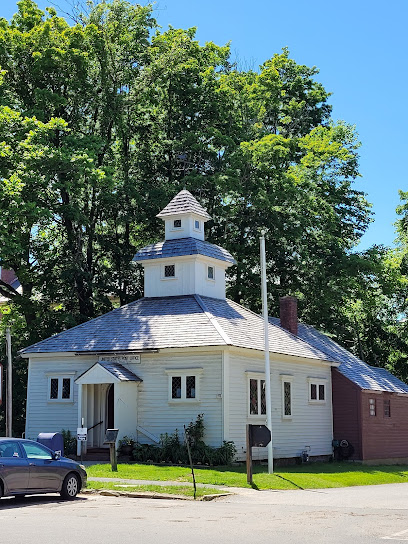
Great Falls Discovery Center
Explore the intersection of nature and culture at Great Falls Discovery Center, where history comes alive in the heart of Turners Falls, Massachusetts.
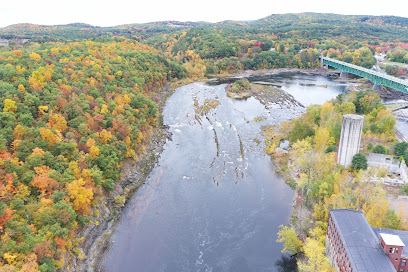
Poet's Seat Tower
Explore Poet's Seat Tower: a historical landmark in Greenfield, MA, offering breathtaking views and a glimpse into local heritage.
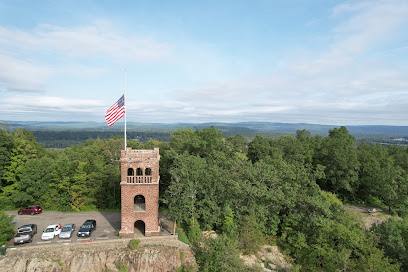
Canalside Rail Trail
Explore the scenic Canalside Rail Trail in Turners Falls, MA, a perfect blend of nature, history, and outdoor adventure for every traveler.
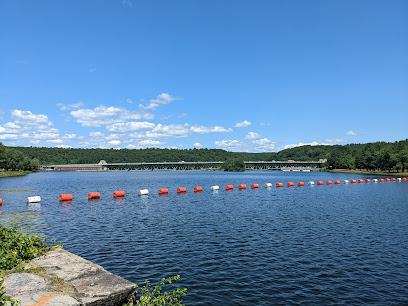
Clarksburg State Park
Explore Clarksburg State Park: A natural haven for hiking, canoeing, and camping amidst the beauty of Massachusetts.
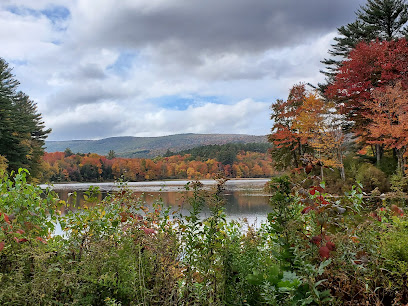
Essential places to dine
Wendy's
Savor delicious fast food at Wendy's in Greenfield - where fresh ingredients meet great taste.
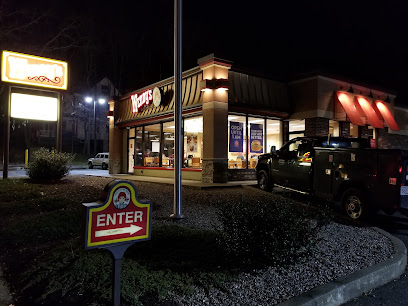
Golden Eagle Restaurant
Experience exquisite Italian cuisine alongside fresh seafood and juicy steaks at Golden Eagle Restaurant in Clarksburg.
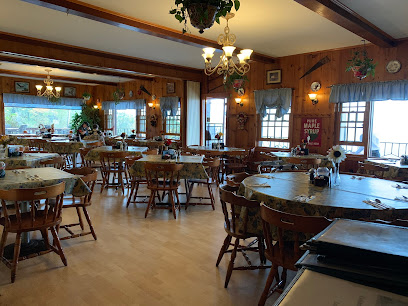
110 Grill Hadley
Discover the taste of America at 110 Grill Hadley – where delicious meets gluten-free in a welcoming atmosphere.
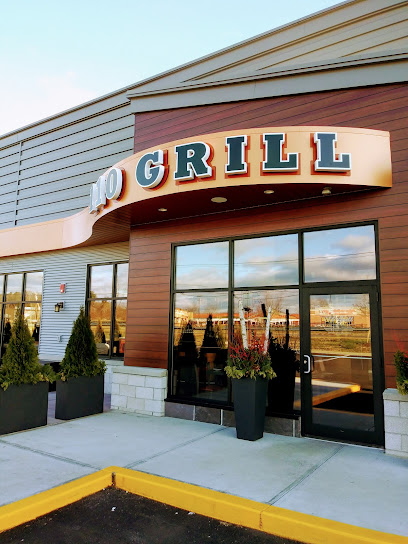
New Fortune
Experience the rich flavors of authentic Chinese cuisine at New Fortune in Greenfield - where every meal is a delightful adventure.
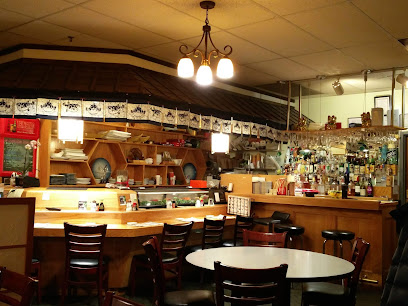
D'Angelo Grilled Sandwiches
Savor the best grilled sandwiches at D'Angelo in Greenfield, MA – where quality meets deliciousness in every bite!
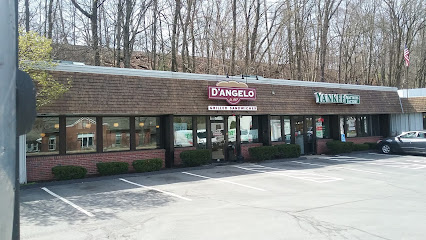
Oriental Flavor
Experience authentic Sichuan and dim sum cuisine at Oriental Flavor in Amherst - where every dish tells a story.
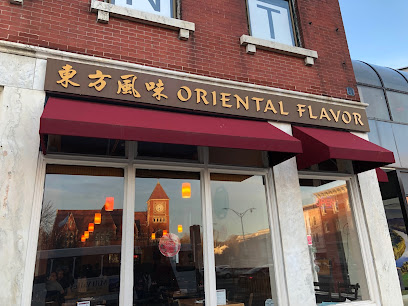
Subway
Discover fresh flavors at Subway in Turners Falls - customizable sandwiches and healthy meals await you!
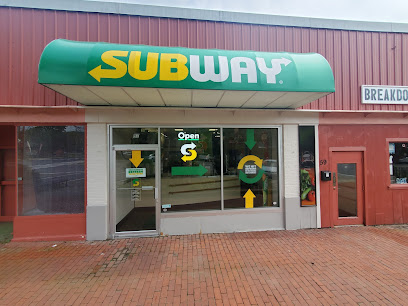
Markets, malls and hidden boutiques
Native Views
Explore Native Views in Shelburne Falls, a gift shop filled with unique cultural treasures and handcrafted local art.
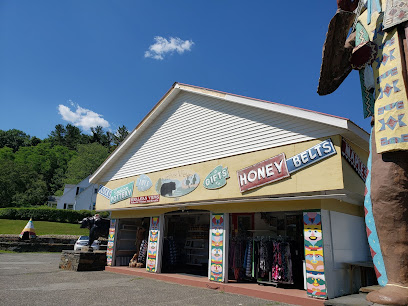
Cold River Package & Market
Explore Cold River Package & Market in Charlemont, MA for a distinctive selection of local beverages and a welcoming shopping experience.
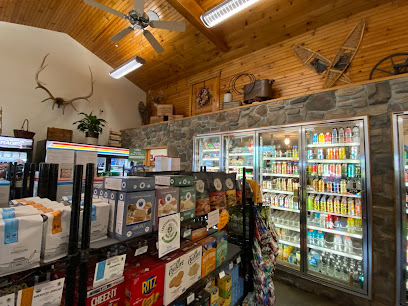
Whitney Hill Antiques
Explore a treasure trove of vintage items and unique antiques at Whitney Hill Antiques in Greenfield, Massachusetts.
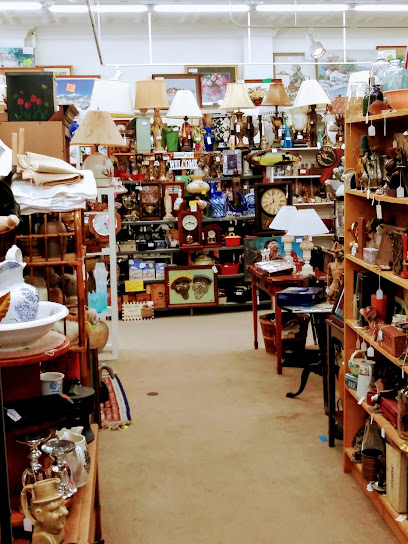
Catamount Traders
Explore Catamount Traders in Shelburne Falls: A treasure trove of antiques, vintage finds, and local craftsmanship awaits your discovery.
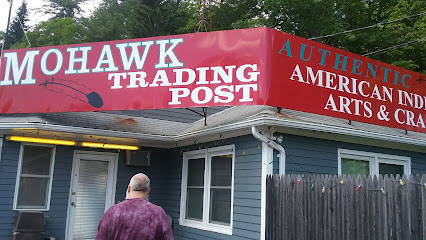
LOOT found + made
Explore the charm of Turners Falls at LOOT found + made, your go-to destination for unique gifts, antiques, and local artistry.
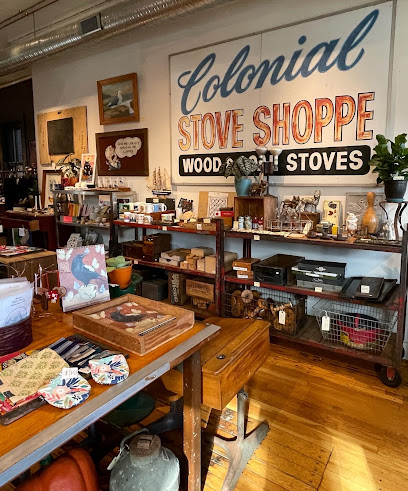
Avery's General Store,Takeout Restaurant and Bubble Tea Bar
Explore the flavors of Charlemont at Avery's General Store, a cozy takeout restaurant and bubble tea bar serving local comfort food and delightful beverages.
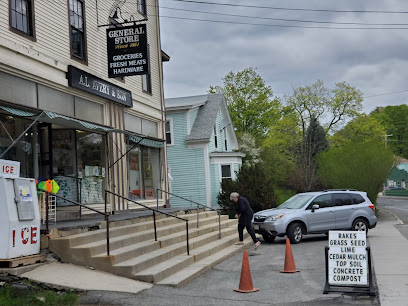
The Great Outdoors
Discover top-notch gear and local expertise at The Great Outdoors, your ultimate destination for outdoor adventures in Charlemont, Massachusetts.
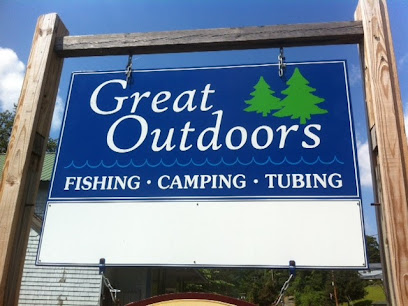
Mohawk Mall Shopping Center
Explore the Mohawk Mall Shopping Center in Greenfield, MA - a shopping haven with diverse stores, dining, and family-friendly entertainment options.

Innovintage Place
Explore Innovintage Place in Greenfield, MA - a charming antique store filled with unique vintage treasures waiting to be discovered.
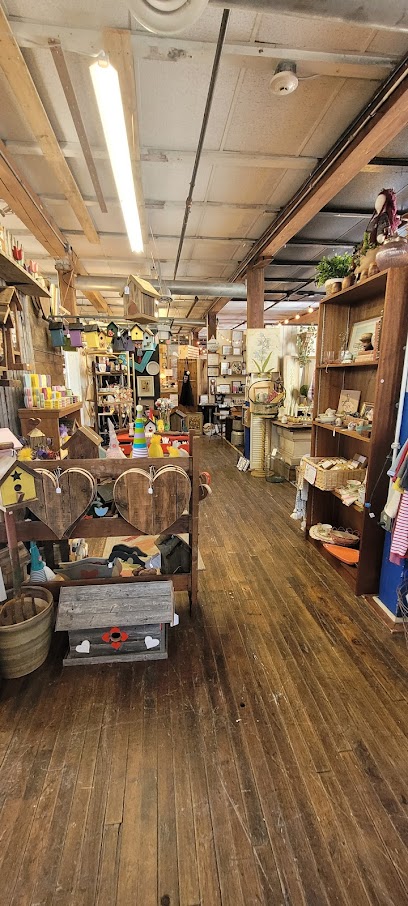
Happy Trails
Explore Happy Trails in Shelburne Falls, MA, for a curated selection of fine wines, craft beers, and unique spirits in a friendly atmosphere.
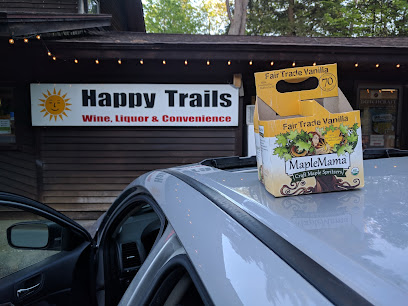
Outpost
Explore Outpost in Shelburne Falls for unique clothing and accessories that embody local style and creativity.
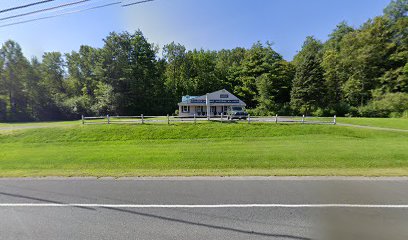
Moldavite Dreams
Discover unique gifts and mystical treasures at Moldavite Dreams, your go-to gift shop in Greenfield, Massachusetts.
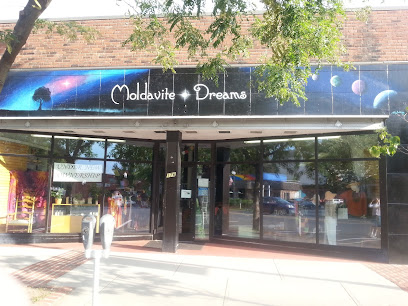
Bridge Street Bazaar
Explore unique clothing and jewelry at Bridge Street Bazaar in scenic Shelburne Falls, MA, where local charm meets exceptional shopping.
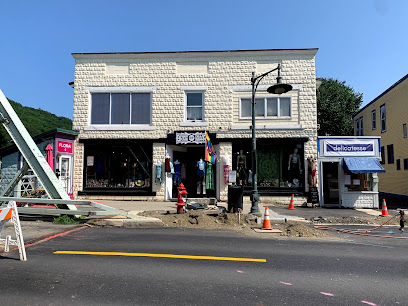
Country Things Antiques Collectibles and Gifts
Explore a treasure trove of antiques and collectibles at Country Things Antiques in Charlemont, Massachusetts, where every item tells a story.
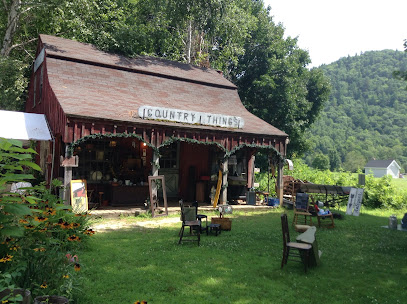
Wandering Moon
Discover unique gifts and handcrafted jewelry at Wandering Moon, your go-to shop in Shelburne Falls, MA for one-of-a-kind treasures.
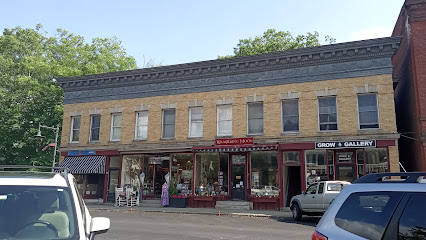
Essential bars & hidden hideouts
99 Restaurants
Experience the heart of New England dining at 99 Restaurants, where delicious food and a lively pub atmosphere await every visitor.
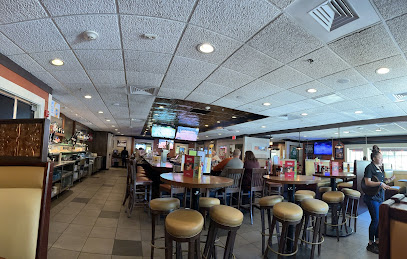
Freight Yard Pub
Discover the rich flavors of American cuisine at Freight Yard Pub, a must-visit destination in North Adams, MA, blending tradition with modern flair.
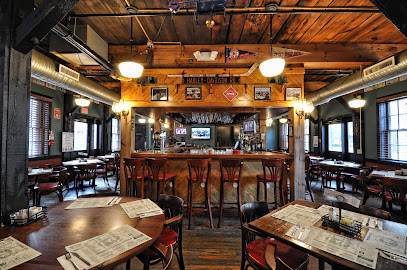
Applebee's Grill + Bar
Discover the perfect blend of comfort food and casual dining at Applebee's Grill + Bar in Greenfield, MA, where every meal feels like home.
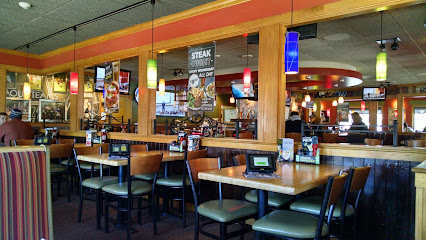
PUBLIC eat+drink
Explore the culinary delights of PUBLIC eat+drink, a New American gastropub in North Adams, where local ingredients meet innovative flavors.
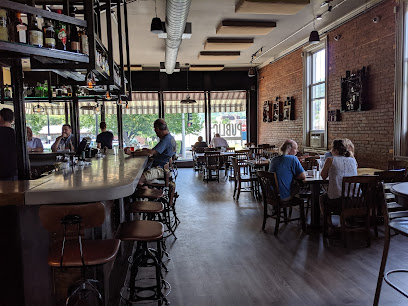
Hangar of Greenfield
Experience the charm of Greenfield at Hangar of Greenfield, where delicious grilled dishes meet a unique aviation-themed ambiance.
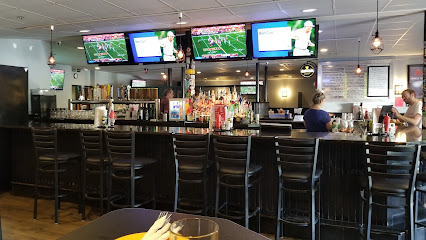
Trail House Kitchen & Bar
Discover the unique flavors of American cuisine at Trail House Kitchen & Bar, a must-visit dining destination in North Adams, Massachusetts.
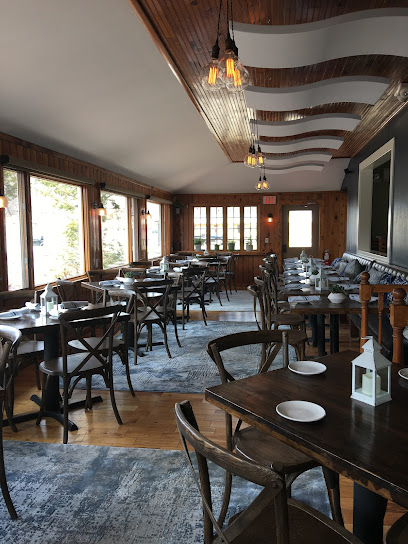
Black Cow Burger Bar
Discover the ultimate burger experience at Black Cow Burger Bar in Turners Falls, where gourmet flavors meet a cozy atmosphere and delightful desserts.
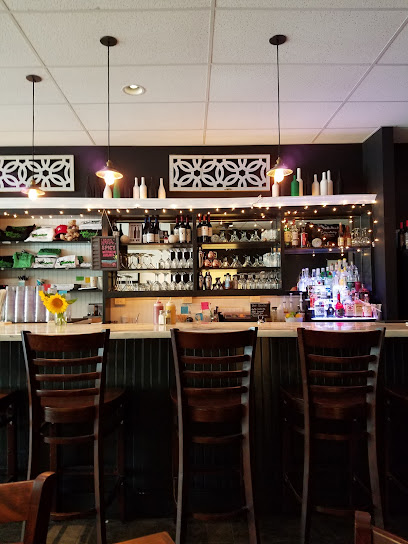
Golden Eagle Restaurant
Discover culinary excellence at the Golden Eagle Restaurant in Clarksburg, offering Italian, seafood, and steakhouse specialties in a charming atmosphere.
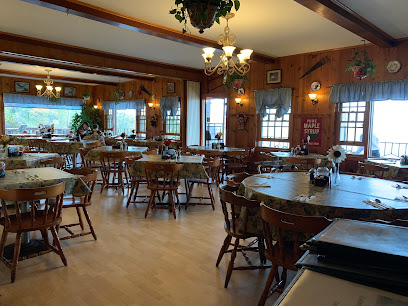
The Rendezvous
Experience the best of local dining at The Rendezvous, a charming grill and hamburger restaurant in Turners Falls, MA, perfect for casual meals.
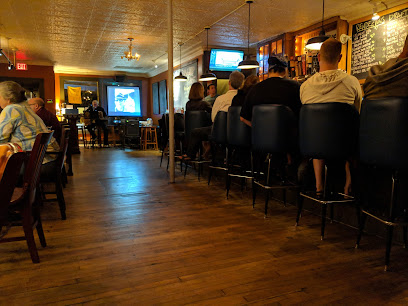
West End Pub
Discover the local flavors at West End Pub, a cozy grill in Shelburne Falls, MA, with delicious food and a welcoming atmosphere.
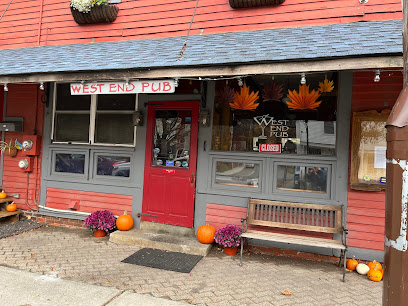
The People's Pint
Experience the best of Greenfield dining at The People's Pint, where craft beer meets a delicious, locally sourced menu.
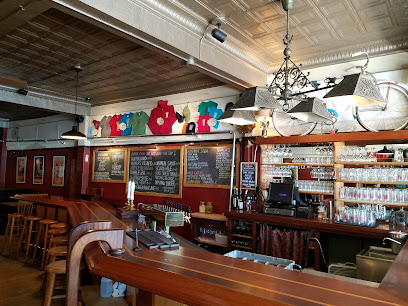
Purple Pub
Discover the heart of Williamstown at Purple Pub, where delightful grill dishes meet a vibrant bar atmosphere in a cozy setting.
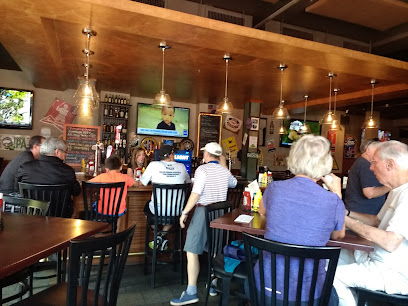
Main Street Bar & Grille
Explore Main Street Bar & Grille in Greenfield, MA, where delicious grill fare meets a family-friendly atmosphere, perfect for all occasions.
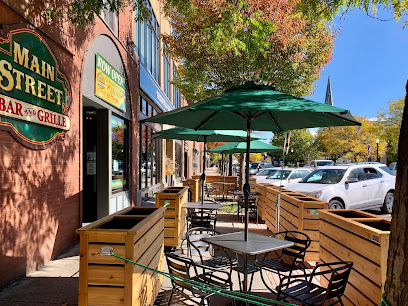
French King Restaurant and Motel
Discover a perfect blend of comfort and culinary delight at French King Restaurant and Motel in Erving, Massachusetts.
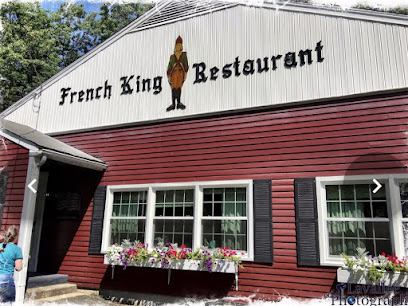
Local Phrases about Mohawk Trail
-
- HelloShe:kon
[shay-gon] - GoodbyeSewakwe:kon
[seh-wah-gway-gon] - YesEa
[ay-ah] - NoNia
[knee-ah] - Please/You're welcomeNiawenhkó:wa
[knee-ah-wen-koh-wah] - Thank youNia:wen
[knee-ah-wen] - Excuse me/SorryOnenh
[oh-nen] - How are you?Kwe kwe
[kweh-kweh] - Fine. And you?Skaononh
[skah-oh-nonh] - Do you speak English?Oⁿkwariⁿ ne onwe ne raonnyo?
[on-wah-ree-on-nay-nay-rah-own-nyoh] - I don't understandRatitiwennón:ni
[rah-dee-dee-wen-nohn-nee]
- HelloShe:kon
-
- I'd like to see the menu, pleaseKio’nikonhra
[key-oh-nee-gon-hrah] - I don't eat meatNia:wen ohneka
[knee-ah-wen ohn-eh-kah] - Cheers!O:nenh
[oh-nen] - I would like to pay, pleaseKio’nikonhra
[key-oh-nee-gon-hrah]
- I'd like to see the menu, pleaseKio’nikonhra
-
- Help!Kweh
[kweh] - Go away!Kweh
[kweh] - Call the Police!Kweh
[kweh] - Call a doctor!Kweh
[kweh] - I'm lostNia:wen onkwa’nikòn:ra
[knee-ah-wen ohn-kwah-nee-gon-rah] - I'm illNia:wen onkwa’nikòn:ra
[knee-ah-wen ohn-kwah-nee-gon-rah]
- Help!Kweh
-
- I'd like to buy...Kio’nikonhra
[key-oh-nee-gon-hrah] - I'm just lookingNia:wen onkwa’nikòn:ra
[knee-ah-wen ohn-kwah-nee-gon-rah] - How much is it?Tiokaristha
[dee-oh-gah-ree-sthah] - That's too expensiveRasénhes
[rah-sehn-hehs] - Can you lower the price?Rasénhes
[rah-sehn-hehs]
- I'd like to buy...Kio’nikonhra
-
- What time is it?Ronwaia’tanónhsera
[rohn-wah-yah-tah-nonh-seh-rah] - It's one o'clockKanónhsa’
[gah-nohn-hsah] - Half past (10)Nia:wen onkwa’nikòn:ra
[knee-ah-wen ohn-kwah-nee-gon-rah] - MorningNia:wen onkwa’nikòn:ra
[knee-ah-wen ohn-kwah-nee-gon-rah] - AfternoonNia:wen onkwa’nikòn:ra
[knee-ah-wen ohn-kwah-nee-gon-rah] - EveningNia:wen onkwa’nikòn:ra
[knee-ah-wen ohn-kwah-nee-gon-rah] - YesterdayKanónhsa’
[gah-nohn-hsah] - TodayKanónhsa’
[gah-nohn-hsah] - TomorrowKanónhsa’
[gah-nohn-hsah] - 1Kanónhsa’
[gah-nohn-hsah] - 2Kanónhsa’
[gah-nohn-hsah] - 3Kanónhsa’
[gah-nohn-hsah] - 4Kanónhsa’
[gah-nohn-hsah] - 5Kanónhsa’
[gah-nohn-hsah] - 6Kanónhsa’
[gah-nohn-hsah] - 7Kanónhsa’
[gah-nohn-hsah] - 8Kanónhsa’
[gah-nohn-hsah] - 9Kanónhsa’
[gah-nohn-hsah] - 10Kanónhsa’
[gah-nohn-hsah]
- What time is it?Ronwaia’tanónhsera
-
- Where's a/the...?Kanónhsa’
[gah-nohn-hsah] - What's the address?Kanónhsa’
[gah-nohn-hsah] - Can you show me (on the map)?Kanónhsa’
[gah-nohn-hsah] - When's the next (bus)?Kanónhsa’
[gah-nohn-hsah] - A ticket (to ....)Kanónhsa’
[gah-nohn-hsah]
- Where's a/the...?Kanónhsa’
History of Mohawk Trail
-
The Mohawk Trail, originally a Native American trade route, has been used for centuries by various tribes, including the Mohawk and Pocumtuck peoples. This ancient path facilitated the exchange of goods and culture between tribes in the Hudson River Valley and the Connecticut River Valley. The trail was integral to the social and economic fabric of the region long before European settlers arrived.
-
During the 17th century, European settlers began to utilize the Mohawk Trail for trade and military purposes. The trail played a critical role during King Philip's War (1675-1676), when colonial and Native American forces clashed over territory and resources. The route provided a strategic link between settlements, enabling the movement of troops and supplies.
-
In the early 20th century, the Mohawk Trail was transformed into one of the first scenic highways in the United States. Officially opened in 1914, the modern Mohawk Trail spanned more than 60 miles, from the Massachusetts-New York border to the Connecticut River Valley. The project aimed to promote automobile tourism and highlight the natural beauty of the Berkshires.
-
The development of the Mohawk Trail as a scenic highway brought significant economic benefits to the region. Towns along the route, such as North Adams and Shelburne Falls, saw an influx of tourists, leading to the growth of local businesses, including inns, restaurants, and souvenir shops. The trail also became a cultural icon, celebrated in postcards, travel literature, and local lore.
-
Today, the Mohawk Trail is renowned for its breathtaking vistas, especially during the fall foliage season. Key attractions along the route include the iconic Hairpin Turn, the Bridge of Flowers in Shelburne Falls, and the Hoosac Range. The trail also offers numerous hiking opportunities, with several state parks and recreational areas providing access to the region's natural wonders.
-
The Mohawk Trail region hosts a variety of cultural festivals and events that celebrate its rich history and vibrant community. Notable events include the Fall Foliage Festival, which attracts visitors from all over to witness the stunning autumn colors, and the Mohawk Trail Concerts, which offer classical music performances in historic venues. These events highlight the enduring cultural significance of the trail.
-
Efforts to preserve the historical and natural integrity of the Mohawk Trail have been ongoing for decades. Various organizations and local governments have worked together to maintain the scenic quality and historical landmarks along the route. Preservation initiatives include the protection of natural habitats, the restoration of historic sites, and the promotion of sustainable tourism practices.
Mohawk Trail Essentials
-
The Mohawk Trail is located in the northwestern part of Massachusetts. The nearest major airport is Boston Logan International Airport, approximately 130 miles away. From Boston, you can rent a car and drive to the Mohawk Trail, which typically takes about 2.5 to 3 hours. Alternatively, you can take a bus or train to nearby towns such as North Adams or Greenfield, and then use local transportation options to reach the trail.
-
While the Mohawk Trail is best explored by car due to its scenic byway nature, there are also options for biking and hiking. Car rentals are available at major airports and in nearby cities. Public transportation is limited, but local buses and taxis can be found in towns along the trail. For those looking to cycle, bike rentals are available in some towns, and there are dedicated bike paths for safer travel.
-
The official currency in the United States is the US Dollar (USD). Credit and debit cards are widely accepted in most establishments along the Mohawk Trail, including restaurants, hotels, and shops. However, it is advisable to carry some cash, especially for smaller businesses and rural areas. ATMs are available in most towns along the trail.
-
The Mohawk Trail is generally a safe destination for tourists. However, as with any travel destination, it is important to take standard precautions. Avoid leaving valuables in your car unattended, especially in remote areas. There are no specific high-crime areas targeting tourists, but it is always best to stay vigilant and aware of your surroundings.
-
In case of emergency, dial 911 for immediate assistance. Local police stations and medical facilities are available in towns along the Mohawk Trail. It is recommended to have travel insurance that covers medical emergencies. For minor health issues, there are pharmacies in most towns where you can purchase over-the-counter medications.
-
Fashion: Do dress comfortably for outdoor activities, including hiking and walking. Layers are advisable due to changing weather conditions. Religion: Do respect local customs and traditions. Some areas may have historical churches or religious sites. Public Transport: Public transport is limited, so do plan ahead if you are not driving. Greetings: A friendly wave or handshake is common. Eating & Drinking: Do try local delicacies and regional cuisine. Don’t litter; always carry your trash with you until you find a proper disposal bin.
-
To experience the Mohawk Trail like a local, visit during the fall when the foliage is at its peak. Stop by roadside farm stands for fresh produce and local crafts. Engage with locals in small towns to learn about the area's history and culture. Don't miss natural attractions like Mount Greylock, the highest peak in Massachusetts, and the Bridge of Flowers in Shelburne Falls. Also, take advantage of the numerous hiking trails and scenic overlooks for breathtaking views.
Nearby Cities to Mohawk Trail
-
Things To Do in Brattleboro
-
Things To Do in Keene
-
Things To Do in Albany
-
Things To Do in Hudson
-
Things To Do in Saratoga Springs
-
Things To Do in West Hartford
-
Things To Do in Hartford
-
Things To Do in Worcester
-
Things To Do in Rutland
-
Things To Do in New Britain
-
Things To Do in Woodstock
-
Things To Do in Killington
-
Things To Do in Waterbury
-
Things To Do in Nashua
-
Things To Do in Middletown










